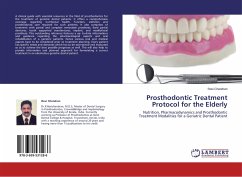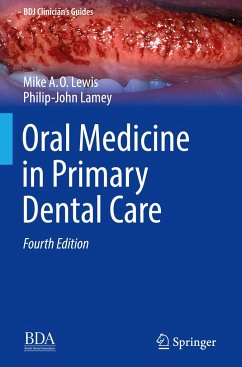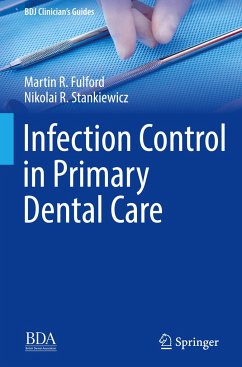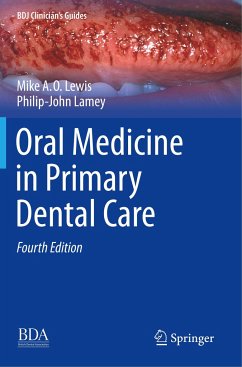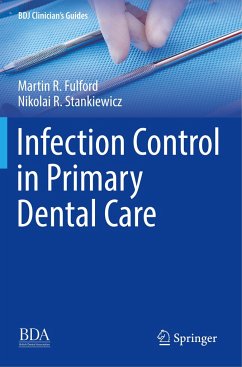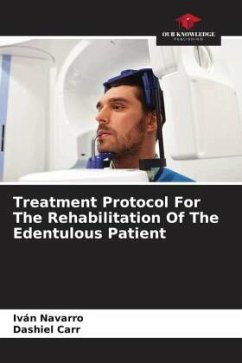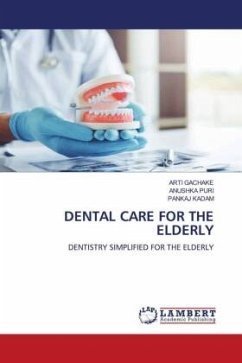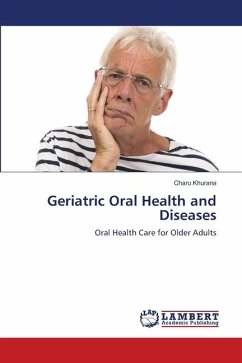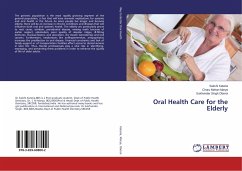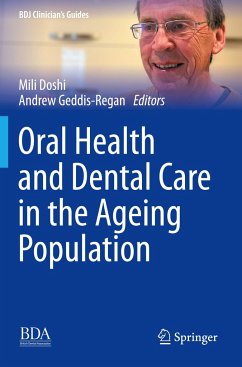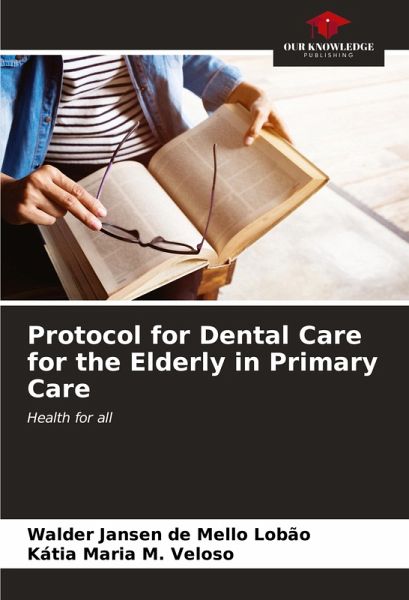
Protocol for Dental Care for the Elderly in Primary Care
Health for all
Versandkostenfrei!
Versandfertig in 6-10 Tagen
18,99 €
inkl. MwSt.

PAYBACK Punkte
9 °P sammeln!
The scientific literature states that health programmes aimed at the elderly are rare and the few epidemiological studies carried out show a worrying situation, such as: high rates of periodontal disease, oral mucosa lesions and the need for prostheses. This book makes a careful analysis of journals and allows research to be directed towards 6 thematic lines that will contextualise and define how care for the elderly should be provided in the dental office: 1- History of the increase in the elderly population; 2- Context of oral health for geriatric patients; 3- Expansion of dental-geriatric s...
The scientific literature states that health programmes aimed at the elderly are rare and the few epidemiological studies carried out show a worrying situation, such as: high rates of periodontal disease, oral mucosa lesions and the need for prostheses. This book makes a careful analysis of journals and allows research to be directed towards 6 thematic lines that will contextualise and define how care for the elderly should be provided in the dental office: 1- History of the increase in the elderly population; 2- Context of oral health for geriatric patients; 3- Expansion of dental-geriatric services; 4- Importance of dental care for the elderly; 5- Knowledge of the relationship between systemic and oral alterations; 6- Need for a protocol for caring for these patients. Dental surgeons should provide care to the elderly according to a protocol, so that there can be a correct relationship with professionals from other areas, promote disease prevention, carry out correct managementand diagnosis of oral alterations, and thus attribute a better quality of life to this growing segment of the population.



